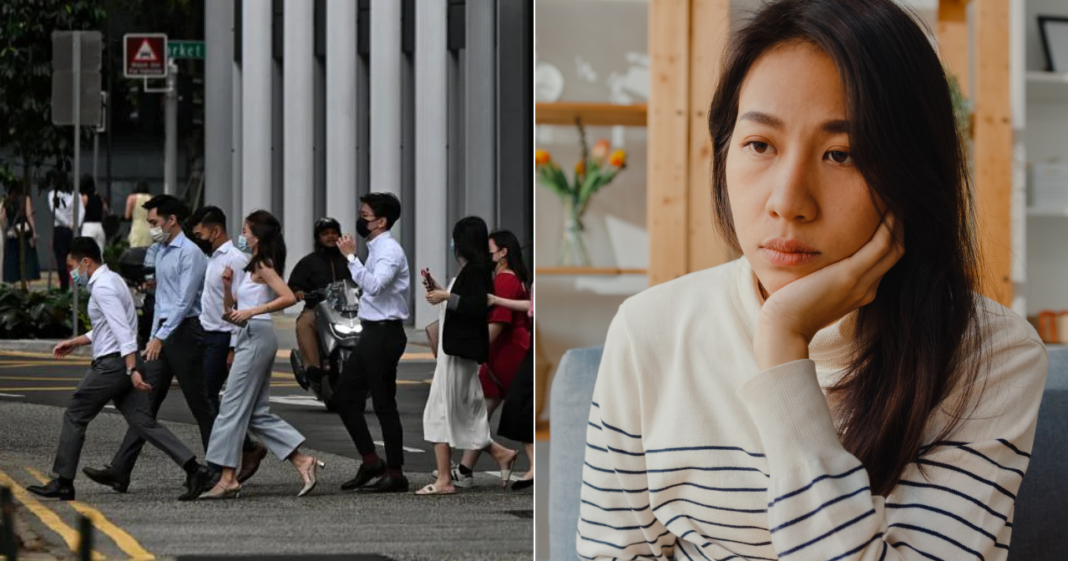It’s no secret that workers in Southeast Asia tend to earn less than their Western counterparts, due in part to inflation as well as weaker currencies. But if there’s one thing we can sus out from the typical ‘Asian’ working culture, it’s the fact that it doesn’t really afford the average worker a satisfactory work-life balance. While people in North America can confidently refer to their jobs as a ‘Nine-to-five’, over here in Southeast Asia, it can take on slightly more tiring variations like ‘Nine-to-six’, ‘Eight-to-seven’, and the like.
You get the gist. It certainly doesn’t sound as enticing, does it? In developing nations, this is still probably more manageable, due to the decreased emphasis on hustle culture and staying at the office past office hours, just for the sake of looking hardworking. In highly-developed Southeast Asian nations, like Singapore, this unfortunately takes a different turn, as new findings by consumer research and analytics company Milieu Insights show.
3,000 people across Singapore, Indonesia, and the Philippines were interviewed for the Milieu Insight study, which was conducted in collaboration with Intellect, a mental health tech company. According to the findings, a mere 57 percent of Singaporeans rated their mental health to be “good”, “very good”, or “excellent” – not as ideal when compared to the higher numbers reported from Indonesia (68 percent) and the Philippines (78 percent). But why is the workforce in Singapore finding it particularly difficult? There are multiple factors at play here, including financial and geopolitical uncertainties, a potential global recession, COVID-19, as well as the glorification of hustle culture.
This is especially pertinent among younger employees in Singapore. Singaporeans cite the chance to build a better life for themselves and their loved ones (58 percent), achieving a sense of accomplishment (53 percent), and earning more income (50 percent) as the top reasons behind why they constantly push themselves at work. A similarity across all three countries is the fact that 50 percent of employees in the region feel they suffer from burnout at least a few times a month.
41 percent of them say they “often” or “always” can’t stop thinking about work. The group most affected by this are 16-24-year-olds, reportedly motivated by the “fear of not being able to do as well as my peers. ” These numbers are actually quite surprising when you consider the fact that Singaporeans spend less than or as much time at work as their regional counterparts.
But they still report the lowest levels of engagement and job satisfaction. Only 42 percent of Singaporeans surveyed said they experienced high engagement at work (with a score of eight or higher out of 10). On the other hand, 52 percent of Indonesians and 56 percent of employees in the Philippines reported high work engagement.
In terms of job dissatisfaction, Singapore once again comes out on top – with 26 percent of employees reporting it, compared to 15 percent in Indonesia and 17 percent in the Philippines. The most worrying statistic of all is quality of life among Singapore employees – more than half (52 percent) say they have a poor quality of life, compared to 37 percent in Indonesia and 36 percent in the Philippines. A poor quality of life also translates to less hours spent sleeping, and a lower quality of sleep (30 percent of Singaporeans).
“Interestingly, we ran a similar study in 2020 among 2,000+ Singaporeans, where we found that 52 percent of 16-to-24-year-olds actually embraced the idea of hustle culture, and working as hard as possible to advance one’s career,” said Stephen Tracy, COO of Milieu Insight. “Two years on, I think this poll sheds light on how opinions toward work have evolved, and how the effects of the pandemic and other global issues, such as inflation and a looming recession, may be weighing on the younger generations. The data highlights just how important it is for employees to be mindful of their work-life balance, and for employers to cultivate positive and balanced working environments.
” Generous delivery rider leaves huge US$426 tip for hardworking restaurant staff Here’s how many working days it’ll take you to afford the iPhone 14 Pro based on salary M’sian shares why he works as S’pore garbage collector despite similar pay at home 13. 4% of Singaporeans will become millionaires (higher than U. S.
and China) by 2030.
From: mashable
URL: https://sea.mashable.com/life/21411/sporeans-have-the-worst-mental-health-job-satisfaction-quality-of-life-in-sea



